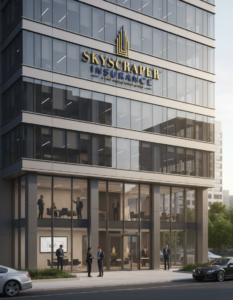The opinion held that the coverage exclusion in Nationwide’s policy went against the Motor Vehicle Financial Responsibility Law.
The Pennsylvania Superior Court has held that Nationwide‘s exclusion barring recovery for injured unlicensed drivers runs counter to Pennsylvania law.
The opinion, authored by President Judge Jack Panella, held that the coverage exclusion in Nationwide’s policy, which says unlicensed drivers cannot be covered, went against the Motor Vehicle Financial Responsibility Law (MVFRL), which requires insurers to provide first-party medical expense coverage for motor vehicle-related injuries.
According to Panella, Christina Tapia Castaneda was driving her mother’s car without a valid driver’s license when she was rear-ended by another car, causing her to suffer severe injuries. As Castaneda’s mother had a Nationwide insurance policy covering the car, Castaneda submitted a claim for first-party medical expense benefits.
However, Nationwide claimed it had no duty to cover her medical expenses under the unlicensed driver exclusion in the policy and went on to seek a declaration that it wasn’t obligated to pay first-party medical benefits to Castaneda under the exclusion. The trial court agreed and issued judgment in favor of Nationwide.
On appeal, Castaneda argued that the MVFRL “mandates that policyholders pursue, and insurers provide coverage for, first-party medical expenses for injuries arising from the use of a motor vehicle,” with the General Assembly having “made clear its language in Section 1711 that its intent was undoubtedly to require policyholders to purchase a minimum amount of medical expense coverage for injuries stemming from the use of motor vehicles, while at the same time requiring insurers to cover that amount should a first-party claim for medical expenses be submitted.”
Complex Claims & Litigation Forum 2024EVENT
The conference experience aimed to help insurers and litigators Prevent, Prepare, and Prevail in complex claims cases and risks.
The Superior Court agreed, noting that carriers must pay regardless of fault. The court further credited Castaneda’s argument that mandatory no-fault first-party medical expense coverage “has historically been an inviolate part of Pennsylvania’s auto insurance coverage scheme.”
According to Panella, in making medical expense coverage mandatory in the MVFRL, the General Assembly made the decision to treat it differently from other first-party benefit coverage.
“To be sure, there are no other first-party benefits, other than medical expense coverage, listed as a required benefit in Section 1711. Instead, the following section of the MVFRL, Section 1712, entitled ‘Availability of benefits,’ lists other first-party benefits related to injury arising out of the use of a motor vehicle that an insurer does not have to provide coverage for but instead, must make available for policyholders to purchase if they so choose,” Panella said. “Those optional benefits include income loss benefits, accidental death benefits and funeral benefits.”
According to Panella the issue came down to whether Section 1718 represented a finite set of permissible exclusions, which is what Castaneda claims, or whether, per Nationwide’s argument, the section doesn’t “represent an exhaustive list of exclusions insurers may invoke to deny a claim for mandatory medical expense benefits.”
Panella agreed with Castaneda’s argument that the court couldn’t ignore the mandatory nature of medical expense coverage because doing so would ignore the legislature’s intent for insurers to provide a minimum amount of medical expense coverage for injuries sustained in a car accident.
“In Section 1718, the legislature set out a list of ‘limited circumstances where an insurer may exclude persons from the benefits of this mandatory no-fault medical expense coverage,’” wrote Panella.
“Section 1718 does not include an unlicensed driver exclusion, and therefore it is not a valid exclusion upon which Nationwide can rely to refuse coverage for Christina’s medical expenses arising from the accident,” Panella concluded. “We stress that our conclusion is confined to claims for first-party medical expense benefits, the only benefits at issue in this case.”
Castaneda’s attorney, Scott B. Cooper of Schmidt Kramer, said he and his co-counsel, James C. Haggerty of Haggerty, Goldberg, Schleifer & Kupersmith, were pleased that the court followed the Pennsylvania MVFRL.
“Hopefully, the insurance companies will realize that the courts are not going to let them decide what motor vehicle insurance they want and do not want to provide to its insured,” said Cooper. “The law sets the standard and when the company narrows and conflicts with the law the provision will be deemed invalid.”
Nationwide’s attorney, Matthew M. Haar of Saul Ewing Arnstein & Lehr, did not immediately return a request for comment.
Insurance Coverage Law Center editor’s note: Castaneda may have been driving without a license, but she was driving her mother’s car with her mother’s permission. Since she was driving the insured vehicle with the permission of the named insured, she came within the scope of the Nationwide policy.
Financial responsibility laws exist to ensure that people are protected from loss due to auto accidents. While insurers are allowed to create policy language and exclusions, the specific issue here, that of first-party medical expenses and an unlicensed driver who was injured, is unique in that the policy exclusion is contrary to state law. Notice that the court made clear that the position only applies to first-party medical expenses; had the unlicensed driver injured another party, the exclusion would have been upheld.









